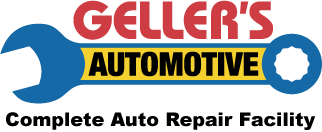
Colder temperatures and winter weather can sometimes be a recipe for problems when it comes to your vehicle. Even with regular maintenance, your vehicle is still susceptible to problems during the winter. This is especially true when there are extreme differences in temperature and/or you are driving in hazardous road conditions.



 Preventive maintenance is the best way to make sure your vehicle lasts for as long as you'd like to own it. Caring for your vehicle will also help you prevent breakdowns. We've got some tips to help you do both.
Preventive maintenance is the best way to make sure your vehicle lasts for as long as you'd like to own it. Caring for your vehicle will also help you prevent breakdowns. We've got some tips to help you do both.  We provide quality repairs for all of your car, truck and medium-duty truck needs. Our shop houses the finest and most up-to-date tools and equipment to ensure that your vehicle is repaired properly.
We provide quality repairs for all of your car, truck and medium-duty truck needs. Our shop houses the finest and most up-to-date tools and equipment to ensure that your vehicle is repaired properly.  Bringing your vehicle to Geller's Automotive for the first time? Our auto repair shop is conveniently located at 65 Lackawanna Drive in Byram, New Jersey. You can use Google Maps to plot your route.
Bringing your vehicle to Geller's Automotive for the first time? Our auto repair shop is conveniently located at 65 Lackawanna Drive in Byram, New Jersey. You can use Google Maps to plot your route. 










